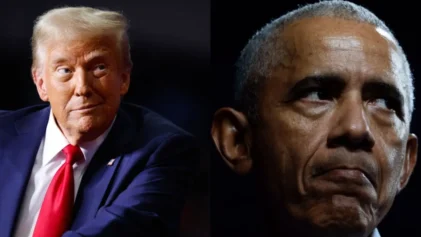As more than 100 prisoners at Guantanamo Bay participate in a hunger strike to protest their legal limbo, President Obama yesterday said he essentially agrees with them — creating the bizarre situation where of the president of the United States agrees with prisoners who are starving themselves to protest his government.
“The notion that we’re going to continue to keep over a hundred individuals in a no-man’s land in perpetuity,” he said, “the idea that we would still maintain forever a group of individuals who have not been tried – that is contrary to who we are, it is contrary to our interests, and it needs to stop. All of us should reflect on why exactly are we doing this? Why are we doing this?”
But the president’s eloquence on the issue brings to mind one basic question: If the president so passionately wants to close the Cuban-based prison, why hasn’t he done it yet?
A piece in today’s Washington Post offers succinct answers. As described by the Post, the president’s surprising comments sounded “more like a 2007 campaign speech than the words of someone who has been U.S. president for four-plus years.”
Amy Davidson of the New Yorker said Obama “spoke as if he had happened upon the place, like a bystander.”
The president acknowledged that Gitmo is a waste of taxpayer money — to the tune of $800 million a year — and has had a damaging effect on American foreign policy.
According to the Post, the biggest issue preventing the detention center from closing is the inability of the White House, Congress and foreign governments to come to an agreement about where to put the detainees.
The 166 detainees can leave the center through one of four different routes: a civilian trial, a military tribunal, a foreign country’s prison system, or freedom. But according to the Post, civilian trials and military tribunals have been blocked by Congress, which passed legislation barring the federal government from funding trials for Guantanamo detainees or buying a prison in the U.S. to house them.
The U.S. can choose the third route and send the detainees to a foreign country’s prison system, but that is only legal if the U.S. can be sure that the detainees won’t be tortured there. But that is nearly impossible guarantee given the countries from which the detainees originate, such as Yemen, where most of them come from.
Of the 166 detainees, 86 of them could actually be freed, since the U.S. government believes they can be safely released back into the world. But the government has nowhere to send them — their home country will not take them or might torture them, so the U.S. has to find an entirely different country to release them to.
After a recent study was released estimating that between 16 and 27 percent of released Gitmo detainees have participated in terrorism after leaving the facility, most American officials are not going to promise they will never return to extremism, which is a guarantee sought by Congress.
So after all of that, Obama’s hands seem to be tied, which explains his unusual statement yesterday.
“I’m going to go back at this,” he said. “I’ve asked my team to review everything that’s currently being done in Guantanamo, everything that we can do administratively, and I’m going to re-engage with Congress to try to make the case that this is not something that’s in the best interests of the American people.”
One reasonable option is for him to work with Yemen, the home country of a majority of the detainees and which says it’s working on a $11 million facility to house and rehabilitate them. But the Yemeni government is fairly unstable.
“I think for a lot of Americans, the notion is out of sight, out of mind,” Obama said Tuesday. “I’m going to go back at it because I think it’s important.”


